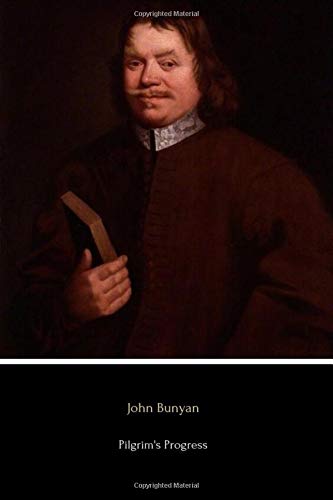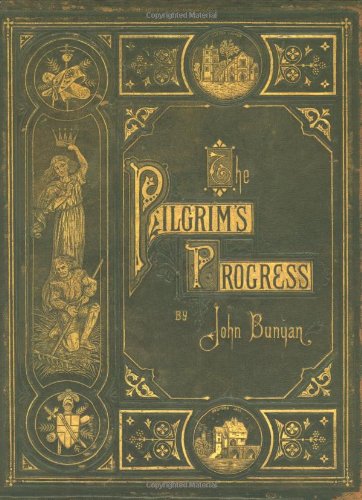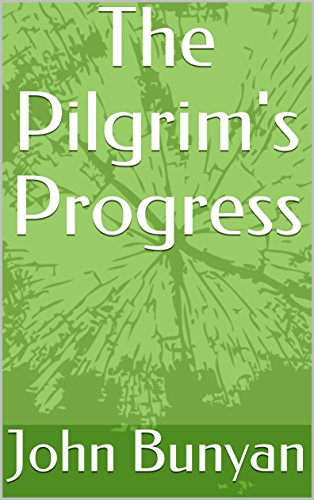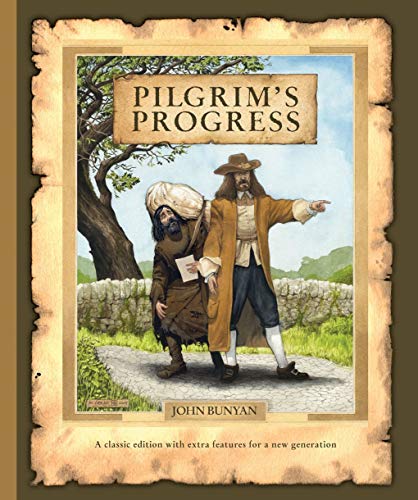John Bunyan
The Holy War of Mansoul
The Holy War
The righteous and honorable ruler Shaddai and his son Emmanuel rule Mansoul with justice and equity. But the ruler of darkness - Prince Diabolus - has other plans. With his evil captains and their battalions Diabolus plots the fall and destruction of the once happy city.
The first to fall is Captain Resistance as Diabolus knows that there is only one route into the city and that it can only be breached through the permission of the people of Mansoul itself. With Captain Resistance gone, the city is laid open to Diabolic lies and the next to fall is Lord Innocency and then the city is lost.
Bunyan's plan for his readers was for them to experience the struggles of the city of Mansoul as a fierce battle rages to take control of it. However, alongside this knife-edge drama Bunyan wished his readers to understand how the struggles of their souls ran in parallel to the struggles of the wretched inhabitants of that place.
For we wrestle not against flesh and blood, but against principalities, against powers, against the lords of this age, rulers of this darkness, against spiritual wickedness in the heavens. (Ephesians 6:12)
What if you were able to see your life from a spiritual perspective and see the actual reality of the verse above? How does our enemy, Diabolus, plan and carry out his attacks? How do his demons help, and what are their objectives? Why and how must we petition Emmanuel to get His attention and help in this great, holy war?
Written four years after The Pilgrim's Progress, John Bunyan followed up with this second allegorical classic, which has touched hearts and minds of readers for generations. The epicenter of this book is the town of Mansoul, its people (such as Conscience, Self-Denial, and Do-Right), and its gates (Eye-gate, Ear-gate, Mouth-gate, Nose-gate, and Feel-gate).
The attack by Diabolus and his demons, all of whom have appropriate names, is carefully planned and executed. As still happens to men today, Mansoul fell hard. Emmanuel is of course willing to help, but can only do so on special, seemingly strict terms. As you watch this intense battle unfold, you'll be emboldened to fight with new vigilance, to guard the gates with tenacity, and to rely on Emmanuel's sovereignty like never before.
The entire story is a masterpiece of Christian literature, describing vividly the process of the fall, conversion, fellowship with Emmanuel, and many more intricate doctrines.
About John Bunyan:
John Bunyan was born in November 1628, in Elstow, England. A celebrated English minister and preacher, he wrote The Pilgrim's Progress (1678), the book that was the most characteristic expression of the Puritan religious outlook. His other works include doctrinal writings; a spiritual autobiography, Grace Abounding (1666); and the allegory The Holy War (1682).
- ISBN
- / 9798656656504
- Pages
- 231
- Weight
- 14.6 oz.
- Dimensions
- 6.0 x 0.6 in.
Enjoy reading The Holy War of Mansoul? You may also like these books
-

John Bunyan
The Pilgrim's Progress
Paperback (CreateSpace Independent Publishing Platform May 27, 2015) -

John Bunyan
The Heavenly Footman or, A description of the man that gets to heaven: with directions how to run so as to obtain
eBook ( Feb. 14, 2012) -

John Bunyan
The Life and Death of Mr. Badman: An Analysis of a Wicked Man's Life, as a Warning for Others
Paperback (Aneko Press Nov. 1, 2017) -

John Bunyan
The Pilgrim's Progress from This World, to That Which Is to Come: Delivered under the Similitude of a Dream
Paperback (CreateSpace Independent Publishing Platform May 15, 2017) -

John Bunyan
Life and Death of Mr. Badman: Complete With 55 Original Illustrations
Paperback (Independently published June 29, 2020) -

John Bunyan
The Pilgrim's Progress Simplified: Includes Modern Translation, Study Guide, Historical Context, Biography, and Character Index
Paperback (CreateSpace Independent Publishing Platform Feb. 24, 2014) -

John Bunyan
Pilgrim's Progress
Paperback (CreateSpace Independent Publishing Platform Sept. 11, 2016) -

John Bunyan
Grace Abounding to the Chief of Sinners: Complete With Original Illustrations
Paperback (Independently published June 29, 2020)










